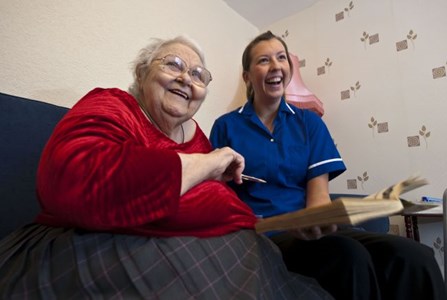The Wolverhampton Transfer of Care Project recognised that in order to meet demand and sustain increased flow across the local health system, an integrated model of intermediate care should be commissioned.
Arden & GEM provided transformational programme management support to help the local health system agree a Discharge to Assess model, develop the capabilities required and deliver the programme objectives. A solution, comprising three pathways, was scoped, developed, tested and implemented within 16 months.
We then set up an operations group and produced a metrics dashboard to enable the programme to be a sustainable ‘business as usual’ model.

The challenge
In 2016, the Wolverhampton Transfer of Care Project reported that avoidable discharge delays were being caused by a lack of understanding regarding intermediate care settings and difficulty in accessing these services. They estimated that better use of an integrated service could release 318 bed days back into the system each month.
They recommended an integrated model of intermediate care should be commissioned which would enable patients to be discharged at the point they were medically ready, and assessed either at home or in an intermediate care setting – the Discharge to Assess (D2A) model.
This would require development of:
- the capability to assess long term care needs at home or in a residential setting
- a single referral process to access the service
- a D2A hub to manage the referral process, triage patient needs, allocate patients to an appropriate pathway and manage resources.
In order to achieve this ambitious programme of work, an experienced transformation support capability was needed to bring together a range of stakeholders from Wolverhampton CCG, Wolverhampton County Council and the Royal Wolverhampton NHS Trust.
Our approach
With experience of supporting other local health systems to successfully develop and implement D2A models, Arden & GEM’s service transformation team was tasked with supporting the project.
Building consensus
Our team started by facilitating a workshop in Wolverhampton with stakeholders from the local authority, CCG, local acute Trust, community services and providers of adult’s social care. Participants were supported to agree a shared vision in which no decision about long term care needs would be made in an acute setting.
As well as validating the report recommendations, the workshop also identified the need for simple, clear pathways with clear referral criteria, a trusted single screening assessment and streamlined community services delivering multi-disciplinary wraparound care.
We then brought together a pathway mapping group to complete flowcharts to show both the existing pathway and the desired pathway.
Programme management
The scope and scale of tasks required to deliver the programme’s objectives led to two worksteams being designed to run concurrently. The first was to appropriately move people out of acute care and into a community health or social care setting. The second was to develop D2A services using a pooled budget agreed via the Better Care Fund. A high level timeline to reflect the complexity of the work was developed by the programme manager.
We tracked the progress of each workstream against plan, monitored issues and risks, and completed a monthly highlight report to keep both the project steering group and Better Care Fund Board updated on progress.
Piloting and implementing the solution
In June 2017, a pilot was undertaken on four wards in Royal Wolverhampton NHS Trust to test the trusted assessment screening form and triage process. The positive feedback received, at both an organisational and individual level, paved the way for the D2A process to be fully implemented in January 2018.
We oversaw the rollout, working closely with the health and social care team manager based at the Trust, to ensure that tasks were carried out as planned and that implementation was delivered on time.
The outcomes
By 2018, the majority of programme objectives had been delivered across both workstreams including:
- Development of a Wolverhampton integrated D2A offer
- Completion of a trusted assessment screening tool
- Simplified clear criteria for access to each of the three D2A pathways
- A virtual referral hub bringing together Trust and local authority teams
- Completion of a full assessment, with clear identification of rehabilitation and reablement potential and goals within the care plan, upon arrival at a D2A service
- Production of information, for staff and patients, about the pathways and referral criteria
- Production of metrics dashboard for ongoing monitoring and evaluation.
The metrics dashboard, for the first month, showed that more than 100 patients had been referred to the new virtual hub, with 96% of patients booked into the appropriate service within 24 hours of the referral being received. Initial delayed transfer of care (DTOC) data shows a downward trend and will continue to be tracked each month, along with use (and appropriateness of use) of D2A services, and patient satisfaction.
In order for the programme to be sustained, we facilitated the setting up of an operations group – comprising frontline services and managers – to enable the D2A model to become business as usual.
The dashboard has also been transferred to the Better Care Fund analytics team within the local authority to ensure ongoing reporting to the operations group.
"The dedicated project management support received from Arden & GEM on the D2A programme was invaluable in achieving the required outcomes. It was a complex area of work, requiring engagement and collaborative working from the provider trust, Local Authority and CCG. The staff supporting the programme were able to quickly build effective working relationships with all partners.
The CSU ensured that the programme followed a recognised project management approach, with monitored, deliverable objectives against an agreed timeline which resulted in the programme being delivered within the identified limited timeframe."
Maxine Danks, Head of Individual Care at Wolverhampton CCG
More on this service
